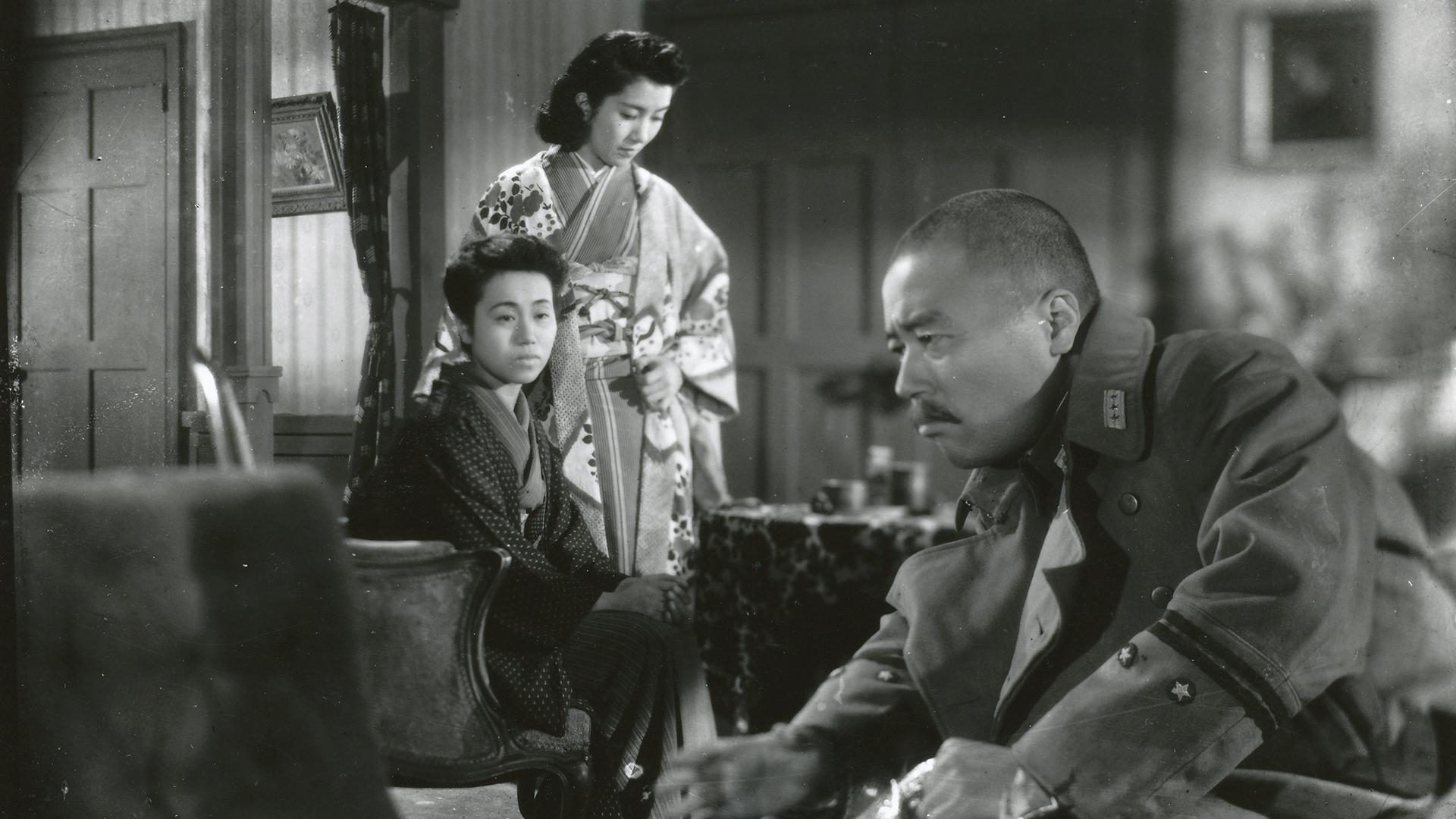
Keisuke KINOSHITA 木下恵介
Morning For The Osone Family
Nippon Retro ²
The liberal OSONE family is torn apart by the Pacific War. Their son Ichiro is arrested for a newspaper article and his brothers are called up for service. When the ultranationalist brother-in-law moves in with the widowed mother and her daughter, the situation becomes unbearable. Shot directly after the war during the US occupation, this is KINOSHITA’s first film made without Japanese wartime censorship.
Guests:
Luk VAN HAUTE
Classic Drama Family
大曾根家の朝
Osoneke no ashita
日本 1946
81 分
海外セールス
Shochiku
フィルム所蔵
Japan Foundation
キャスト
Haruko SUGIMURA, Toshinosuke NAGAO, Shin TOKUDAIJI, Mitsuko MIURA, Shiro OSAKA
About Keisuke KINOSHITA
木下恵介
Keisuke KINOSHITA (1912–1998) is considered one of the most important Japanese directors. Starting in 1943, he made popular dramas, comedies, romances, ghost stories and noir films for Studio Shochiku, finding strong images even within conventions. After ARMY (1944), he was not allowed to work until the end of World War II. From 1945 on, the tension between the past and the hope for a new beginning was his central theme. The suffering, responsibility, and moral challenge of the individual are at the heart of many of his dramas. KINOSHITA’s rejection of feudal, militaristic Japan is clearly visible. With CARMEN COMES HOME (1951), he brought the first Japanese color film to the cinema, a summer comedy with serious overtones. KINOSHITA, who also repeatedly addressed the contrast between country and city, is considered the central humanist of post-war Japanese cinema. His sensitively-portrayed characters and their fates continue to touch audiences today.
協力:Japan Foundation Tokyo 、 Japanisches Kulturinstitut (The Japan Foundation)


